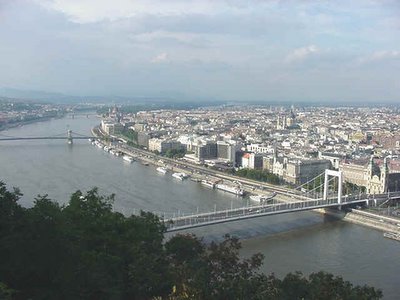EUOBSERVER / SALZBURG - Dutch prime minister Jan Peter Balkenende has suggested that referendums on the EU constitution in the UK, Polandand Denmark would result in a "no" like in his own country, while shrugging off responsibility for the union's constitutional deadlock, Mr Balkenende made his remarks on Friday (27 January) at a high-profileconference on European identity, staged by the Austrian EU presidency in a bid to revive the debate on the EU constitution.And we know, that that assessment will be merely a superficial opinion-poll (commanded with a commercial opinion poll bureau), just serving as a cache-sexe for doing nothing, for a fear of stirring again public opinion. It is absolutely clear, for everybody who can read statistics, that the Dutch May 31, 2005 referendum vote was nothing less than a no-confidence-vote for Mr. Balkenende's government and its policies.
[...]
Dutch foreign minister Bernard Bot earlier this month declared the constitution "dead," a remark which Mr Balkenende declined to repeat, but backed up by saying it is "unrealistic that the constitution willbe put to voters a second time."Mr Bot's remark drew strong criticism particularly from the European Parliament, with Hans-Gert Pottering, the leader of the centre-rightEPP faction, saying "I have no understanding at all for such statements. It should be his responsibility to propose ways how theconstitution can be transposed into legal and political reality." But The Hague has so far refused to take any political initiative, or even to provide a political assessment of what it thinks the deeper causes of the Dutch "no" are." It is too early to make statements," Mr Balkenende said, adding he wants to await results of ongoing government research into Dutch people's attitude to Europe, expected for the end of April.
The Dutch government are saying: "Deepening, pursuing, the EU unification process is no more our job. We are just standing at the sidelines and watch what you are doing about it. We will comment, but do not take our comments seriously, they are for internal use."
This boorish attitude contrasts sharply with the engagements of other governments, like the French:
Dominique de Villepin, France's prime minister, indicated in a speech in Salzburg "The French people did not say no to Europe. They expressed fears and anxiety but also aspirations."
His comments indicate that Paris believes its citizens are particularly uneasy over EU enlargement, but want Europe to better protect them at the same time, creating the need for deeper integration. Referring to the bloc's previous expansion to ten new states in 2004, he stated "enlargement was not sufficiently prepared on the economic front," adding "we went ahead without deepening." On the ongoing EU accession talks with Turkey, he stated "the outcome of the process will remain open, and the last word will be with theFrench people," referring to Paris' pledge to hold a referendum onTurkish membership.
While the French government is keen to show its citizens it has taken enlargement fatigue seriously, it is at the same time taking initiatives to "deepen" integration in individual policy areas. Mr de Villepin singled out tax harmonisation, a common EU border police and an EU energy policy as examples of fresh European projects he has in mind.He also proposed a UNESCO-style "European heritage" trademark for European monuments. French president Jacques Chirac earlier this month said he wishes to see closer co-operation in "internal security and justice, external action and better involvement of national parliaments in the Europeandecision-making process."
© EUobserver.com 2006 Printed from EUobserver.com 28.01.2006And indeed, we have another approach here, that may work, in spite of doubts one may have as to the question if De Villepin will remain in power and not be soon replaced by a stooge of Nicolas Sarkozy. The latter wants the Turkey accession off the agendas, for instance.
The information may be used for personal and non-commercial use only.
This article and related links can be found at: http://euobserver.com/9/20789
The Dutch have all sorts of stakes in the shape the EU will get in the coming months. Staying aloof, will in no way be in the interest of the country.
But the more immediate interest for the Dutch government lies in "calming" public opinion and avert its debates to immigration, cultural sectariansm, etc.
There is a long and steep way to go here.
Technorati Tags: EU Constitution;Netherlands;France;Referendum;Dutch Treat








